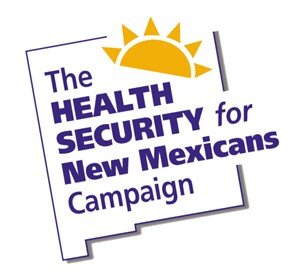We don’t know whether the disastrous Senate efforts to “repeal and replace Obamacare” are really, really dead. Like zombies, bills can resurface.
What intrigues us is that those opposed to the Senate bill have come from a very diverse range of organizations: the American Medical Association, the American Hospital Association, AARP, unions, many advocacy groups, and (hold your breath) the insurance industry!
The insurance industry has been surprisingly public and vocal in its opposition to the Republican proposals to allow insurance companies to offer cheap, bare-bones policies and to abolish the individual and employer mandates to purchase insurance. (And, of course, they oppose all the proposed reductions in federal dollars for Medicaid and for subsidizing the policies bought by individuals on the state-based insurance exchanges—dollars that end up in their pockets!)
We want to alert you to a fascinating letter addressed to the Senate majority and minority leaders (Sens. Mitch McConnell and Chuck Schumer) and signed by two large insurance associations: America’s Health Insurance Plans and the Blue Cross Blue Shield Association.
Talking about Sen. Ted Cruz’s “Consumer Freedom Option” in the Republicans’ Better Care Reconciliation Act (the bill prior to the “Skinny Repeal” bill that failed last Friday), the letter states that offering bare-bones policies, “is simply unworkable in any form and would undermine protections for those with pre-existing medical conditions, increase premiums and lead to widespread terminations of coverage for people currently enrolled in the individual market.”
Their explanation as to why a bill with this provision is “unworkable” is based on a principle that is fundamental to the success of the Health Security Plan: large risk pools. In the letter, they refer to a recent report from the American Academy of Actuaries. The report succinctly explains the benefits of large risk pools:
Basically, pooling those with higher costs with those who are healthy results in spreading out the costs. “In general, the larger the risk pool, the more predictable and stable the premiums can be.”
The key to a stable risk pool, then, is not separating the healthy and the not-so-healthy into two separate pools. Such a separation (which the bare-bones policies allowed under the “Consumer Freedom Option” would permit) will inevitably result in higher premiums for the sick and those with pre-existing conditions.
Since what is being proposed by the Senate Republicans is a voluntary system (no more mandates to purchase insurance), many of the healthy will choose not to purchase insurance. Others will purchase the cheap, bare-bones policies. Those who have greater medical needs will have no choice but to remain in more expensive plans with more comprehensive coverage.
If an insurance pool, even a large one, attracts a disproportionate number of individuals with costly medical conditions, premiums will be higher than if that risk pool included an “average population.”
Does this not sound like a justification for the NM Health Security Plan? With almost all New Mexicans covered under one plan, the risk would be shared. And, under Health Security, premiums would be based on income, not health status.
No one is immune from a potential health disaster due to illness or an accident. Therefore, sharing the risk is the core concept of insurance.
It does not take a brainy economist or actuary (or a brain surgeon!) to understand that premiums will be more “predictable and stable” under such a system.
A large risk pool—like the Health Security Plan's—would also simplify life for the state’s health care providers and hospitals, which currently have to deal with so many plans with different copays, deductibles, and covered services.

